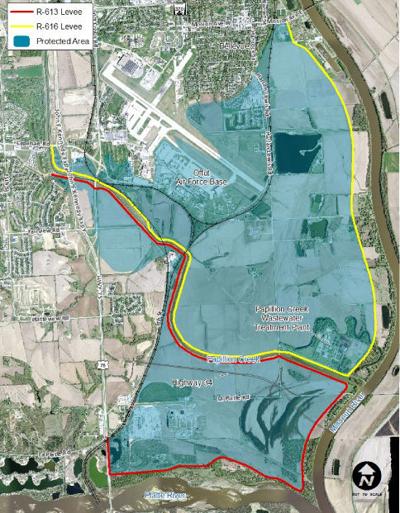More than two-thirds of the U.S. military’s operationally critical installations are vulnerable to climate-related concerns, a new Department of Defense report says. The findings underscore the Pentagon’s general conclusion from several years ago that U.S. national security concerns must include climate-related ones.
“The effects of a changing climate are a national security issue with potential impacts to Department of Defense missions, operational plans, and installations,” the new report states. The Pentagon is incorporating climate considerations into its long-term planning.
The report, titled “Report on Effects of a Changing Climate to the Department of Defense,” focused on 79 installations. Flooding poses a significant threat to 53 of the 79 bases, the report says. Drought threatens 43 installations. Wildfires are a concern for 36.
The reports looked at climate/weather impacts in five regards: recurrent flooding, drought, desertification, wildfires and permafrost thawing.
Offutt Air Force Base was cited as vulnerable to drought. On the positive side, the report found that flooding doesn’t pose a threat to Offutt, showing the importance of the major levee project undertaken to protect the base.
Seven sites, such as Barksdale Air Force Base in Louisiana, face no immediate threat from flooding but have a long-term vulnerability to it, the report said. Five installations, such as Cheyenne Mountain Air Force Station in Colorado, aren’t currently threatened by drought but are vulnerable to it in the future.
“It is relevant to point out that ‘future’ in this analysis means only 20 years in the future,” the report said. “Projected changes will likely be more pronounced at the mid-century mark; vulnerability analyses to mid- and late-century would likely reveal an uptick in vulnerabilities if adaptation strategies are not implemented.”
Congress mandated the analysis as part of the 2018 defense bill, and some lawmakers have criticized the report, saying it failed to list the 10 most vulnerable installations and spell out specifically how the Pentagon intends to address the concerns.
Still, the report shows that the Pentagon continues to regard climate-related factors as a long-term concern for our military operations. That central conclusion provides important long-term guidance for Pentagon decisions on installations and operations.

No comments:
Post a Comment